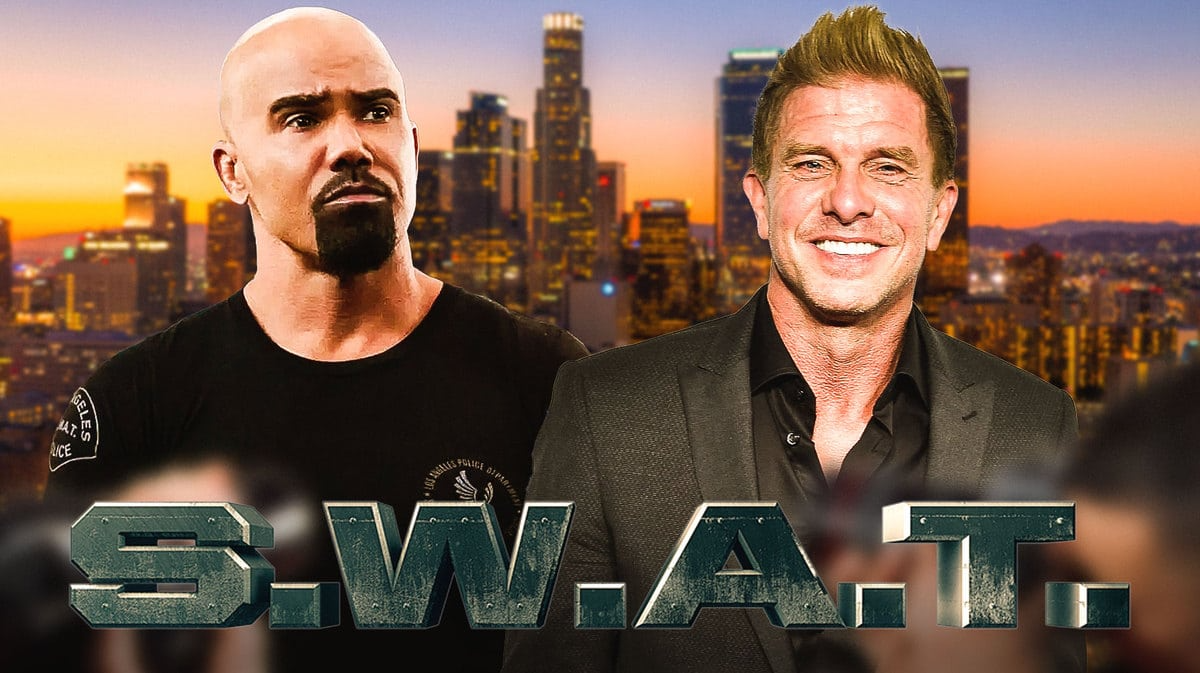
The cancellation of S.W.A.T. after its 8th season and the absence of a S.W.A.T. season 9 has left many fans wondering about the reasons behind this decision. While the exact details may vary, several key factors likely contributed to the show’s conclusion. Here’s an in-depth look at why there won’t be a S.W.A.T. season 9.
1. Declining Viewership and Ratings
One of the primary reasons for the cancellation of S.W.A.T. is its declining viewership over the years. As is often the case with long-running shows, S.W.A.T. experienced a drop in ratings in its later seasons. While the show started with a strong fanbase and solid ratings, its audience gradually diminished as newer series and streaming platforms began to capture more attention.
The decreasing number of viewers made it harder for S.W.A.T. to justify its continued production, especially given the high cost of producing action-packed episodes. Television networks, particularly those like CBS, make decisions based on the return on investment, and with fewer viewers tuning in, the show’s future became unsustainable.
2. Network Programming Changes
Television networks, including CBS, regularly assess their programming strategies. In recent years, networks have been moving towards more cost-effective productions, such as limited series or smaller-budget shows that attract specific target audiences. This shift is often influenced by the rise of streaming services like Netflix, Disney+, and Amazon Prime, which offer a different viewing experience and appeal to a broad range of viewers.
CBS has been prioritizing programming that better aligns with current trends in the industry. As a result, they have chosen to focus on shows with a more modern feel or those that align with their broader strategic goals, leading to the end of S.W.A.T. despite its loyal fanbase.
3. High Production Costs
Another contributing factor to the decision not to renew S.W.A.T. for a season 9 is the high production costs associated with the series. With action-packed scenes, stunts, and extensive special effects, S.W.A.T. had a significant production budget. Over time, as the show’s viewership declined, it became more challenging to justify the costs associated with each episode, especially considering the show wasn’t pulling in the same audience it once did.
Television networks often have to balance the cost of producing a show with the expected revenue it will generate through advertising, syndication, and streaming rights. When the numbers no longer add up, cancellations happen, and this was likely the case with S.W.A.T.
4. The Shift Toward Streaming and On-Demand Content
With the rise of streaming services, the way audiences consume TV content has drastically changed. Viewers are increasingly opting for the flexibility of on-demand content, allowing them to watch shows whenever they want, rather than following a set schedule on traditional broadcast television. This trend has caused a shift in how television networks approach programming.
As streaming platforms like Netflix and Hulu continue to dominate the entertainment landscape, traditional television networks have struggled to compete with the level of on-demand convenience. For a show like S.W.A.T., this shift in viewing habits likely played a role in its cancellation. The show’s traditional network airing model became less appealing to a modern audience that is more accustomed to binge-watching entire seasons on platforms like Netflix.
5. The Conclusion of the Story Arc
S.W.A.T. may have reached a natural conclusion with its 8th season. Often, shows are canceled when they’ve told the story they set out to tell or when the narrative has started to feel stagnant. For S.W.A.T., the closure of character arcs and the resolution of major storylines could have played a role in the decision not to continue with a season 9.
The show had already explored a range of topics, from Hondo’s leadership challenges to the dynamics of the S.W.A.T. team. Given the resolution of many ongoing plot points, CBS may have determined that it was time to end the show while it still had a strong impact rather than dragging it on indefinitely.
6. Shemar Moore’s Future Plans
Shemar Moore, who played the lead role of Hondo, is a major factor in the future of S.W.A.T.. Moore had already hinted that he was ready for new challenges outside the series, and his involvement in other projects may have influenced the decision to conclude the show. While S.W.A.T. was a big part of Moore’s career, he has expressed interest in taking on other roles, possibly focusing on new ventures in television or film.
As Moore continues to explore other opportunities, it’s clear that his departure or potential shift to other projects may have impacted the show’s viability for another season.
7. Shifting Audience Preferences
The landscape of television has evolved, and audience preferences have shifted over the years. Police procedurals and action dramas, while still popular, are facing increasing competition from a wider range of genres. As viewers gravitate toward other types of shows, including comedies, dramas, and mystery thrillers, the audience for shows like S.W.A.T. may have diminished.
This shift in viewing habits made it harder for S.W.A.T. to maintain its place as a primetime fixture on CBS. While the show had a dedicated fanbase, the broader trend toward different types of content may have been a factor in its cancellation.

8. The Impact of Streaming Services and International Markets
Another significant factor in the decision to cancel S.W.A.T. is the growing influence of international markets and streaming services. Shows that once thrived on network television are now being replaced by content that has greater global appeal or can be distributed more efficiently through streaming platforms.
S.W.A.T. was a show with global potential, but it likely didn’t achieve the international success that other CBS properties did. As streaming platforms expand their reach and international audiences become more important, networks like CBS may prioritize content that appeals to these broader markets.
Conclusion
While there is no single reason for S.W.A.T.’s cancellation, a combination of factors likely led to the end of the show after its 8th season. Declining viewership, the high cost of production, shifting audience preferences, and the growing prominence of streaming services all played a role in the decision not to renew the show for a season 9. Though S.W.A.T.has ended, the impact of the series on its fans and the action genre will not be forgotten.
For now, fans of S.W.A.T. will have to reflect on the show’s legacy, knowing that it made its mark on television history even if its time came to an early end.
Frequently Asked Questions (FAQs)
1. Why was S.W.A.T. canceled after season 8?
The cancellation was likely due to a combination of declining ratings, high production costs, and CBS’s shift toward more cost-effective programming.
2. Will there be a S.W.A.T. spinoff or continuation?
There are currently no confirmed plans for a S.W.A.T. spinoff or continuation, but fans are hopeful that the show’s universe may expand in the future.
3. What did Shemar Moore say about the cancellation of S.W.A.T.?
Shemar Moore expressed disappointment and frustration, stating that he believed there was more story to tell and that the decision was premature.
4. Was S.W.A.T. struggling with its viewership in later seasons?
Yes, the viewership for S.W.A.T. began to decline in its later seasons, which likely contributed to the decision to cancel the show.
5. What’s next for Shemar Moore after S.W.A.T.?
Shemar Moore has hinted at exploring new projects in both television and film, though no specific projects have been announced yet.